Maternity package for undocumented migrants
Artefact of the month - December 2020
Newborn nappies, a blanket, muslin squares, baby clothes, light-weight overalls, caps, mittens, breast pads, sanitary towels, a small toothbrush, nail scissors...
The blue reusable bag contains supplies related to the care of a newborn child and motherhood. The contents are similar to those of the maternity package from Kela, which is distributed to pregnant women as a maternity grant. The Kela maternity package is available to permanent residents of Finland and those covered by the country’s social security system. But not everyone meets these requirements. This is why Global Clinic in Helsinki distributes unofficial maternity packages consisting of reusable bags and supplies likes these to undocumented expecting mothers.
Undocumented migrants are people living in Finland without a legal residence permit. It is estimated that there are a few thousand such people living in Finland. Their backgrounds and situations are varied. Some undocumented migrants have had their residence permit application rejected, while others are awaiting a residence permit decision based on family ties. In addition to them, there are so-called itinerant groups, i.e. people who are part of the Romani minorities of Eastern Europe, who do not have European health insurance cards.
Undocumented migrants are in a vulnerable position in society. “Undocumented migrants are of course in an extremely weak position overall. Women are always in a slightly weaker position, and in my experience this is even more pronounced when it comes to undocumented migrants.” (midwife Janita Tasa, who works as a volunteer at Global Clinic, 5 February 2020). Undocumented women are often dependent on their spouses and in a weak social position. Pregnancy and infancy are especially challenging when you are dealing with homelessness and uncertainty about the future at the same time.
In Finland, everyone is provided with treatment for urgent health problems, though undocumented migrants have to cover the cost of treatment themselves. Helsinki and Espoo provide undocumented migrants with treatment for urgent health problems for the same price as local residents. In other municipalities, the situation varies. Undocumented migrants generally do not have access to non-urgent public health care. In many municipalities, undocumented migrants under the age of 18 and undocumented pregnant women are entitled to comprehensive health care services, such as the services of maternity and child health clinics.
Global Clinic is a volunteer clinic that offers free-of-charge health care and advice to those who are not entitled to public health care. The clinic refers undocumented pregnant women to public maternity and child health clinics in cases where the services are available in the undocumented person’s municipality of residence. Challenges in finding maternity and child health clinic services include poor communication, lack of reading and writing skills or language skills.
“There have been cases of pregnant women coming to us [to the clinic] only at the very end of their pregnancy. They may have been living in Finland for the entire duration of their pregnancy without having heard that they are entitled to maternity and child health clinic services. Or not even knowing what a maternity and child health clinic is. We need ways of more effectively communicating about existing services. I don’t necessarily know myself what the most effective methods would be since undocumented migrants often live in hiding.” (Janita Tasa, 5 February 2020.)
The clinic started distributing unofficial maternity packages several years ago at the initiative of an external individual. They suggested that they could assemble a few packages out of clothes that no longer fit their own children. After delivering them, the individual arranged more packages for the clinic via other parents living in the same area who were part of the same Facebook group. Since then, the clothes and toys included in the packages have consisted primarily of external donations. The hygiene supplies are bought from shops and pharmacies with donated funds.
Midwife Janita Tasa from the clinic has also assembled unofficial maternity packages: “I did the same thing, meaning messaged my local Facebook recycling group to ask whether any of the women had things they longer needed: baby clothes, toys, blankets – things that a new mother might need. I asked if they could preferably assemble complete packages or, if not, donate individual products, and people ended up doing both. One mother assembled a simply lovely package, with all of the clothes sorted by size and packed very neatly, and even included a letter in there for the new mother.” (Janita Tasa, 5 February 2020.)
The clinic assembles a few dozen unofficial maternity packages a year. The packages have also been distributed to maternity and child health clinics to give directly to undocumented women. Pregnant undocumented migrants are in such a challenging position that the clinic staff want to support them this way as well.
“We are visited by an average of maybe 20 pregnant women per year. We try to provide every one of them with a package. Some of the women have been very surprised by it.” (Janita Tasa, 5 February 2020.)
The maternity package for undocumented migrants is yet another indication of how important Kela’s maternity package is for parents and parenting. The volunteers assembling the unofficial packages are undoubtedly spurred on by their own experiences of how essential and useful the supplies included in the maternity package were during the first months of their babies’ lives and parenthood. The aim has been to share the same support and experience with women who are about to have a baby in an especially challenging situation.
The contents of the package added to the National Museum of Finland’s collection can be compared to the curated content of Kela’s maternity package. The package even includes recycled overalls from the 2015 edition of the Kela maternity package! The maternity package for undocumented migrants continues the series of Kela maternity packages from different decades that are already part of the museum’s collections. It reflects the different realities that babies are born into in Finland in the 2020s. The items included are related to the position of undocumented migrants in society and more broadly to migration and associated legislation in Finland.
Maria Ollila
Sources:
Tasa, Janita 2019. Paperittomien naisten lisääntymisterveys ja äitiyshuollon palveluiden käyttö Helsingissä – Rekisteritutkimus. Pro gradu, Itä-Suomen yliopisto.
Taskinen, Sirpa 2018. Äitiyspakkaus. In: Taipale, Ilkka (ed.) 2018. Sata innovaatiota Suomesta. Kuinka suomesta tuli suomi - poliittisia, sosiaalisia ja arkipäivän keksintöjä. Helsinki, Into Kustannus.
Web page: https://lsv.fi/toiminta/papete/ (November 13 2020)
Web page: https://www.globalclinic.fi/asiakkaat/ (November 13 2020)
Interview on 5 February 2020, midwife Janita Tasa.
Verbal communique as part of the donation of the object 9 January 2020, Meri Korniloff.


-
2024
-
2023
-
2022
-
2021
-
2020
-
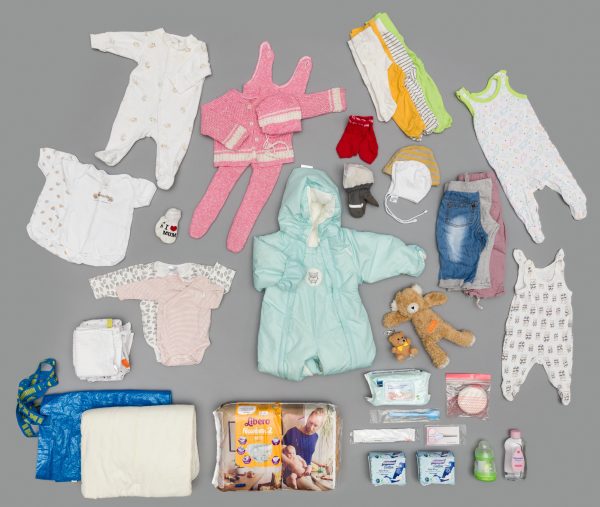 Maternity package for undocumented migrants
Maternity package for undocumented migrants
-
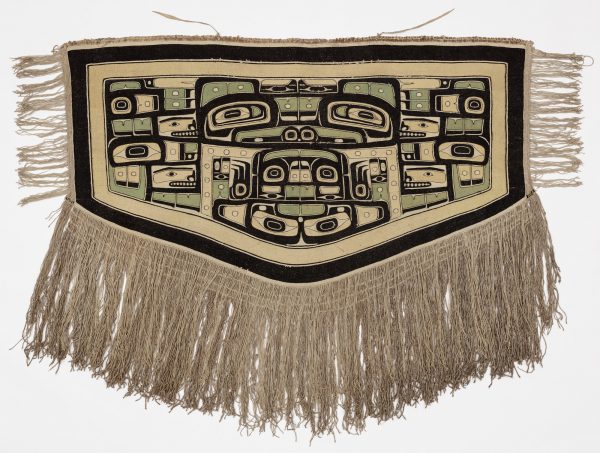 Chilkat blanket
Chilkat blanket
-
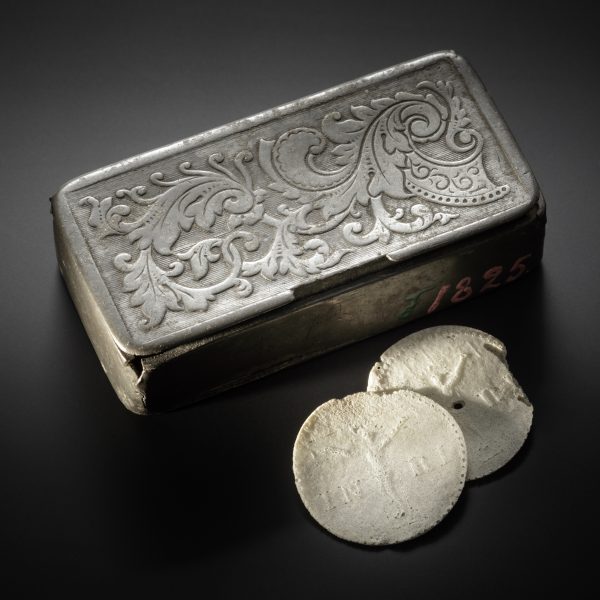 A box of sacramental bread
A box of sacramental bread
-
 Tar steamer model
Tar steamer model
-
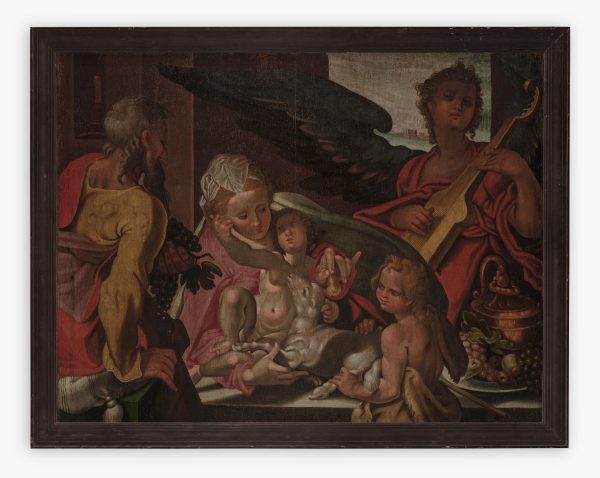 A holy family from the court of Prague?
A holy family from the court of Prague?
-
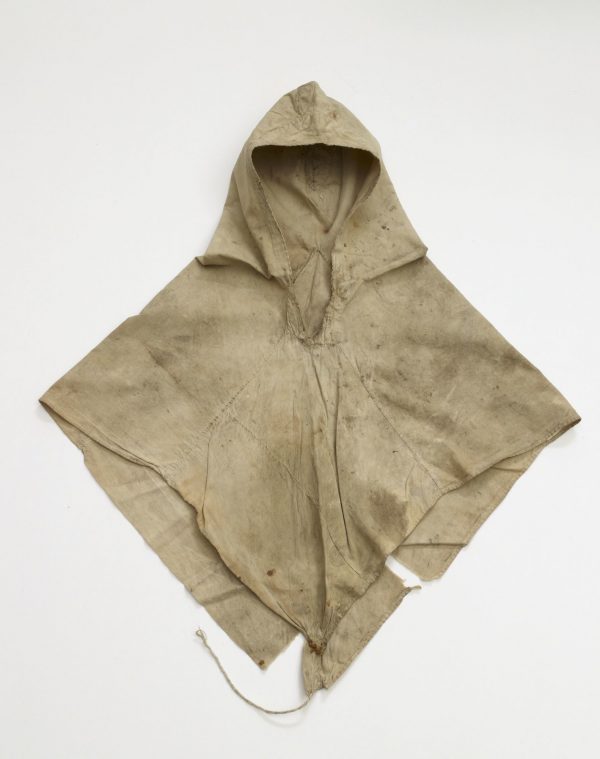 Mosquito hood from East Karelia
Mosquito hood from East Karelia
-
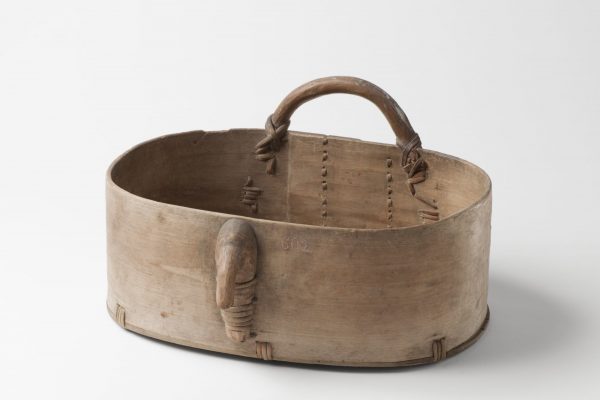 Seedlip (kylvövakka)
Seedlip (kylvövakka)
-
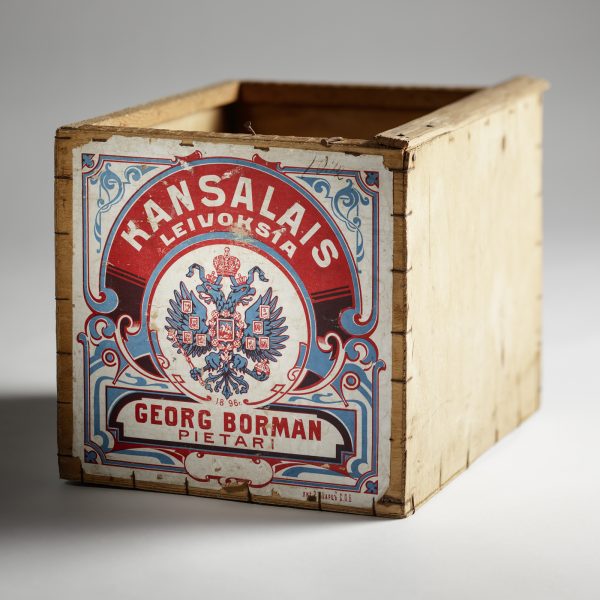 A box of ‘citizens’ pastries’
A box of ‘citizens’ pastries’
-
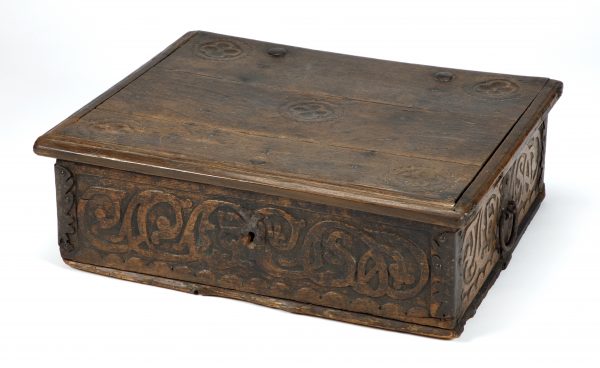 Oak night-box (nattlåda)
Oak night-box (nattlåda)
-
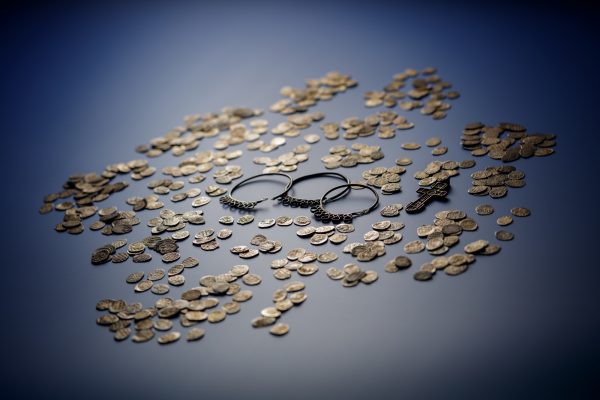 Silver coin hoard from Vieki
Silver coin hoard from Vieki
-
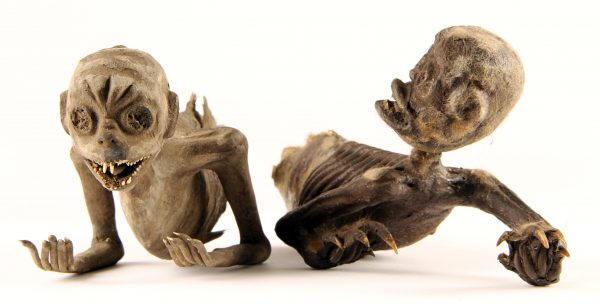 Two mermaids
Two mermaids
-
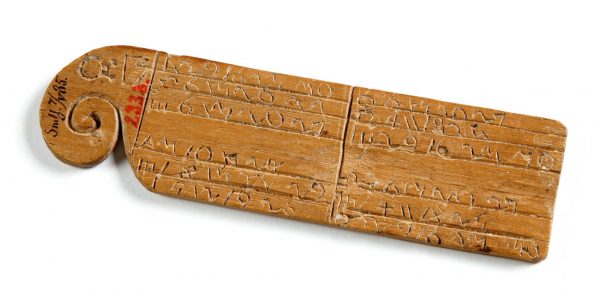 Carl Harlund’s wooden calendar
Carl Harlund’s wooden calendar
-
-
2019
-
2018